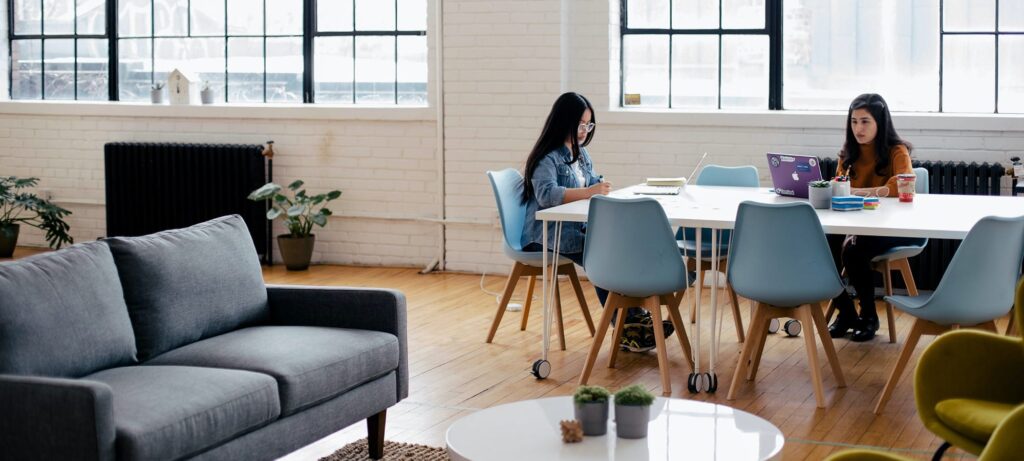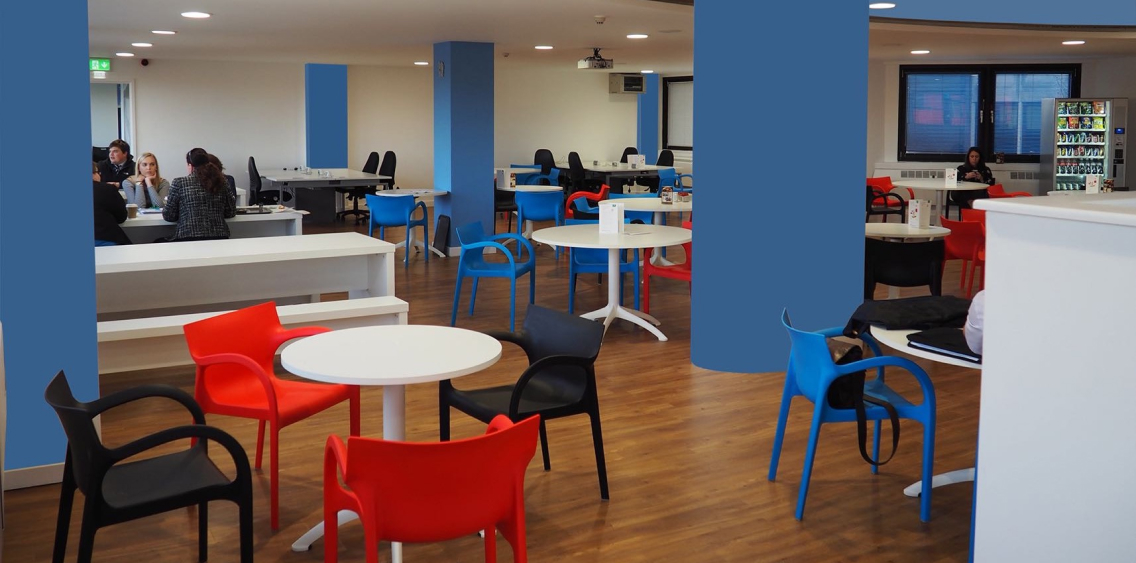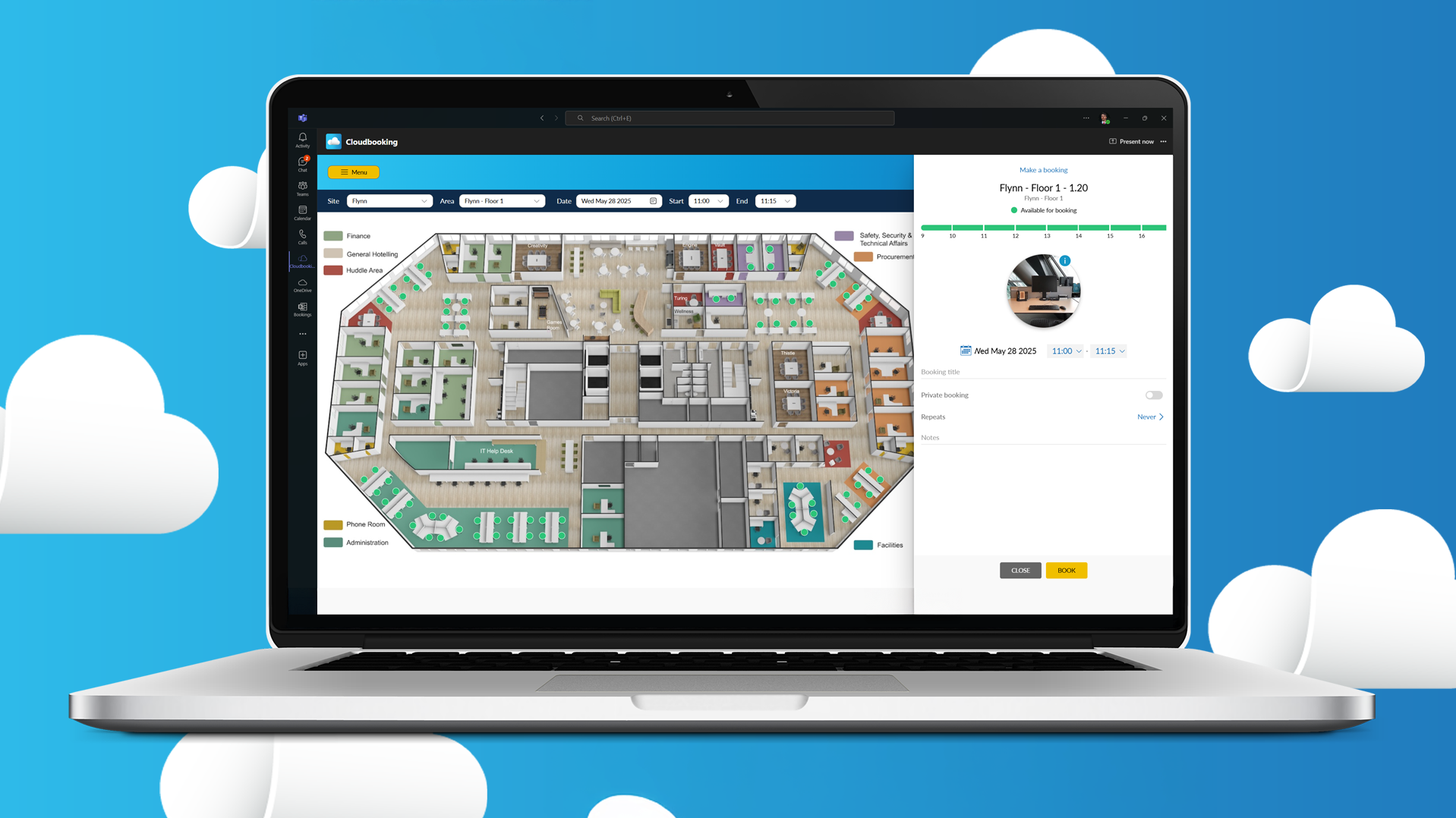
The world in which we live has changed dramatically over the past 7 months, and along with it a fundamental part of our being, the way in which we work. The way we now engage with workspaces and interact with our fellow colleagues has not only transformed beyond recognition, but it continues to evolve as we ride this coronavirus rollercoaster. So the question is, does that leave room for desk hoteling in today’s challenging climate?
Get a free demo
Enquire about a no-obligation demo today and get an exclusive hybrid working research paper — for free. Created in partnership with YouGov, this invaluable guide provides essential insights into developing your own effective hybrid strategy. Click below.
Nobody was expecting the coronavirus pandemic to have such wide-reaching consequences. Workplaces around the world closed their doors, with office spaces being some of the hardest hit.
As remote working soared, some within the industry called this the death of the office. Others, the more optimistic amongst us, rallied to support the changing office environment, and some even spoke out about our need for traditional workspaces. Speaking to the Financial Times, Scott Stephenson, chief executive of Verisk Analytics, claimed “the thing that we’re learning is that people do like going into the office. The workplace is one of their important communities, so there has to be a balance.”
Stephenson is right to defend the community benefits of the office. While offices used to be quite formal environments with employees assigned their own desk space, new-age collaborative strategies have seen the rise of flexible working and desk hoteling, which has had a powerful impact on workplace connectivity and the development of community cultures amongst employees.
Nobody was expecting the coronavirus pandemic to have such wide-reaching consequences. Workplaces around the world closed their doors, with office spaces being some of the hardest hit.
As remote working soared, some within the industry called this the death of the office. Others, the more optimistic amongst us, rallied to support the changing office environment, and some even spoke out about our need for traditional workspaces. Speaking to the Financial Times, Scott Stephenson, chief executive of Verisk Analytics, claimed “the thing that we’re learning is that people do like going into the office. The workplace is one of their important communities, so there has to be a balance.”
Stephenson is right to defend the community benefits of the office. While offices used to be quite formal environments with employees assigned their own desk space, new-age collaborative strategies have seen the rise of flexible working and desk hoteling, which has had a powerful impact on workplace connectivity and the development of community cultures amongst employees.
What is Desk Hoteling Software?
Desk hoteling, sometimes referred to just as hoteling or office hoteling, is an office management strategy that provides agile and flexible working opportunities based on dynamic schedules. Desk hoteling is a reservation system where office space is unassigned and can be booked by anyone, with access to the desk hoteling software.
Employees reserve their desks before they come to work, ensuring they always have somewhere to sit. Reservations can be made for set periods of time, which allows for multiple people to use the same desk throughout the day. Control capabilities can also vary. You can allow anyone to book any desk on your premises, or you can introduce restrictions so people can only book within certain spaces, we like to call this zoning.
How Does Desk Hoteling Support Workplace Community?
In support of Stephenson’s argument for community, desk hoteling allows colleagues to pick and choose where they work. It allows teams that wouldn’t normally be together to connect, and employees that might be located on opposite sides of the building the opportunity to collaborate in new ways. Many desk hoteling systems operate in co-working spaces as well, so instead of isolated rooms and cubicles, there is a much more open environment that helps build working culture.
The Other Benefits of Desk Hoteling
Beyond creating a more dynamic environment that fosters community development and enhances workplace culture, desk hoteling has a number of other benefits, some of which can have profound advantages for businesses.
Reduction in Real Estate – As a collective, companies annually overspend on their desk real estate by billions. It’s common for businesses to have excess desk space that goes unused. Desk hoteling software optimizes workspaces so management teams are aware of what kind of desk capacity they need. By empowering data and workplace insights, this allows decision-makers to take action if they see real estate consolidation opportunities.
Big Data – Desk hoteling is managed via desk hoteling software, and software is a powerful tool for data gathering. Through dedicated analytics, you can collect data on everything from the most popular desk spaces, to which employees are the most active hoteliers. The more data you have, the better equipped you are to make strategic business decisions that will not only benefit your business but also your employees.
Knowledge Sharing – Fixed desk placements can create siloed workspaces. You only ever interact with the limited number of people around you. Hot desking really mixes up the workspace and diversifies who you can interact with, which can mean greater shared knowledge and skills.
Flexible & Hybrid Working – Even before the pandemic, the demand for flexible and remote working policies were on the rise as employees wanted the opportunity to work from home more. Desk hoteling supports the drive for hybrid working, making it easy for employees to come into the office when necessary without the need for assigning a fixed desk, that would otherwise go unused when they’re working from home. You can devise shift patterns, rotating in-office teams and making sure everyone has a space in the office when they need it while also allowing them the flexibility to work remotely. Flexible and hybrid working strategies like this will do wonders for your workspace productivity!
Where Coronavirus and Desk Hoteling Clash
Desk hoteling is a system that is built upon the idea of collaboration and flexibility, getting people into the office and desk sharing spaces. All of these ideas appear to be at odds with the current landscape and the risk factors associated with coronavirus.
- Contact with multiple surfaces
- Social distancing
- Work from home
These are the core tenets of the coronavirus response. But far from becoming obsolete in the COVID-19 era, desk hoteling software is actually becoming increasingly useful in fighting the virus spread.
How Desk Hoteling Software Supports COVID-19 Policy
Desk hoteling presents important advantages for your return to office plan. While it’s based on principles that might not appear COVID-friendly, the technology is highly adaptive and promises new ways of making your workplace safe.
Low-Touch Booking – Desk hoteling works in perfect harmony with the likes of QR code technology which is super easy to deploy. Employees can easily check-in and out of desks, while managing all their booking requirements directly from their own personal mobile device, via a desk hoteling mobile booking app. The advance in smartphone camera technology now means you can easily interact with a desk without any surface contact, reducing the risk of coronavirus spread.
Health Screening & Contact Tracing – Public coronavirus tracing systems have had their fair share of controversy with success rates mainly due to the scale of the projects and the volume of resources required to run them, but that doesn’t mean they aren’t valuable if deployed correctly. Desk hoteling offers a small-scale and targeted version of track and trace unique to your office. Should someone contract the virus, the system can report on who was sitting within their vicinity based on the data logged by the hotel desking software and QR Code check-in technology, allowing those potentially at risk to get tested and isolate if necessary.
Social Distancing – Desk hoteling gives you a live overview of your entire real estate and allows you to remotely manage what spaces are available for booking. The result is as COVID-19 restrictions continue to evolve, you can always easily ensure social distancing measures are maintained by removing the ability for employees to book desks too close to each other.
Desk Assignments – It’s also possible to limit desk access to particular sets of individuals or teams within your business. An example of this is desk zoning, where desk bookability is restricted to a set of users from a particular department so that only people within that group can work in that space. It enables flexible working while lowering the chance of contact with a wider range of colleagues. Yes, this does reduce the ability for certain people to connect, but it does mean that you can create workplace bubbles that prevent people from coming into unnecessary contact and reducing the potential risk of viral transmission.
Fast-Paced Introduction – The coronavirus pandemic presents a series of unprecedented obstacles, in an effort to overcome these obstacles, businesses are looking to find solutions, and fast. Desk hoteling can be integrated within your workplace within a matter of weeks, making it a reliable and rapidly-deployable option in your return to work strategy.
Experience the benefits of desk hoteling first hand with Cloudbooking software. Get in touch with our team today to see how we can help your business make a safe return to the workplace.



